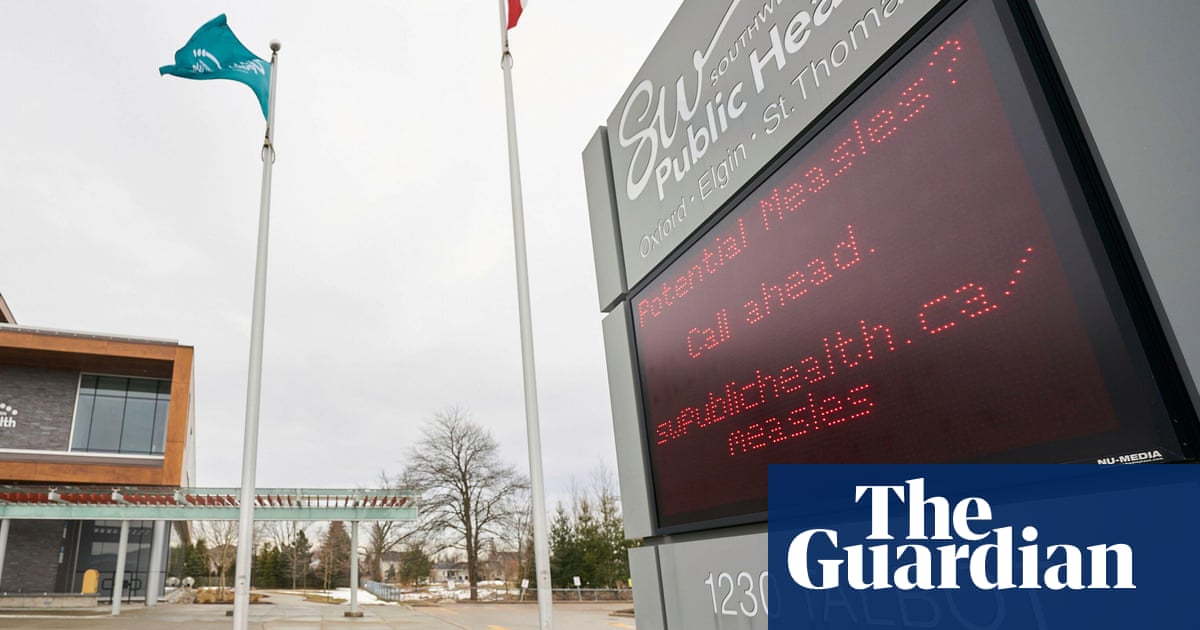Six babies with unvaccinated mothers have been born with congenital measles in theCanadianprovince of Ontario since the start ofthe largest outbreak of the disease in the western hemispherelate last year.
Ontario’s chief medical officer of health, Kieran Moore, said the infants, who were infected with measles in the womb, had all recovered. He said the infections could have been prevented through routine vaccination.
Congenital measles, which refers to cases in which a child is born already infected with the highly contagious disease, can produce inflammation of the brain and in some cases, death.
Canada achieved “elimination status” for measles in 1998, meaning the virus is no longer circulating regularly. But the scale of the outbreak in Ontario could overturn that achievement.
Since October, Canada’s most populous province has reported more than 2,000 cases – more than all of those in theUnited States combined in 2025.
Public health figures show cases continue to climb despite efforts to quell the rise. Last week, the outbreak reached a grim milestone after the province recorded its first fatality. Moore told the media apremature baby, who contracted measles in utero, died from medical complications, including the presence of the virus.
“It’s only a very small subgroup of people who have chosen not to get vaccinated who are having the complications,” he said on Friday.
While the vaccine is not recommended once a person is pregnant – in part because it contains a live virus that could be passed on to the fetus – public health groups recommend unvaccinated pregnant people get one dose of intravenous immunoglobulin if they are exposed to measles.
“Some people, if they don’t want a vaccine, they may not want the immunoglobulin either. That may be a philosophical choice,” he said.
Moore said that Canada’s high levels of vaccination had nonetheless blunted what could be a far worse outbreak, giving large swaths of the population protection against the virus.
“I know some will concentrate on the glass being half-empty. You know, to have that level of protection in the face of the risks globally, I think is quite an accomplishment.”
